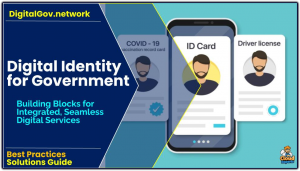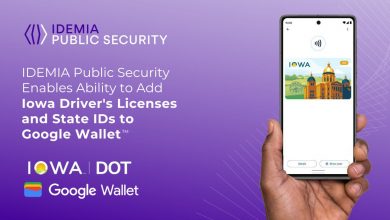Blockchain for Government
Blockchain ensures that all participants in a network can verify transactions without relying on intermediaries, which is critical for building confidence in digital markets.
 Blockchain technology, a decentralized and immutable digital ledger system, serves as a cornerstone for the digital economy by fostering trust, security, and efficiency in transactions and data management across diverse sectors.
Blockchain technology, a decentralized and immutable digital ledger system, serves as a cornerstone for the digital economy by fostering trust, security, and efficiency in transactions and data management across diverse sectors.
By enabling transparent and tamper-proof record-keeping, blockchain ensures that all participants in a network can verify transactions without relying on intermediaries, which is critical for building confidence in digital markets where fraud and cyberattacks are prevalent concerns.
Its decentralized nature allows for seamless interoperability across jurisdictions and industries, facilitating secure data exchange in areas such as finance, supply chains, and healthcare.
Blockchain’s ability to support smart contracts—self-executing agreements coded on the ledger—streamlines processes like payments, trade settlements, and contract enforcement, reducing costs and delays in the digital economy.
Additionally, blockchain enhances data integrity and traceability, enabling advanced applications like digital identity systems, tokenized assets, and decentralized finance (DeFi), which drive innovation and expand economic opportunities. By providing a robust framework for secure, transparent, and efficient digital interactions, blockchain underpins the infrastructure needed for a thriving digital economy, from e-commerce to cross-border trade.
Governments have compelling reasons to develop a strategic approach to blockchain adoption to capitalize on its transformative potential and strengthen their digital economies.
By integrating blockchain into regulated sectors such as finance, trade, and public services, governments can enhance transparency, reduce administrative burdens, and improve the accuracy of data management, as seen in applications like blockchain-based land registries or digital voting systems.
A national blockchain strategy can bolster economic competitiveness by aligning with global standards, attracting investment, and fostering innovation in emerging technologies like digital currencies and tokenized economies.
Blockchain also strengthens financial stability by enabling real-time tracking of transactions and assets, helping governments combat money laundering, tax evasion, and systemic risks in interconnected digital markets.
To support innovation, governments can embed blockchain into digital identity frameworks, e-government platforms, and supply chain systems, creating a foundation for secure and efficient digital services. Encouraging adoption through incentives, such as grants for blockchain startups or pilot programs for small businesses, can reduce barriers to entry and promote widespread use.
By collaborating with international organizations and other jurisdictions, governments can ensure interoperability and harmonized standards, positioning themselves as leaders in the global digital economy. In essence, a proactive blockchain adoption strategy enables governments to build resilient, innovative, and inclusive digital ecosystems while addressing local economic and societal needs.
From secured mortgage documents to full Digital Democracy, the Blockchain will play a keystone role in digitizing a nation.
Blockchain can provide a secure and tamper-proof system for managing government and industry data. By using a decentralized ledger and immutable records, governments can revolutionize land registry systems reducing disputes and streamline property transactions, reduce identity theft, improve tax compliance and reduce tax evasion.
In the featured video the Government Blockchain Association explores how state and local governments are embracing blockchain to improve efficiency and transparency, and here are some example areas where governments can leverage blockchain solutions:
- Identity Management: Blockchain can provide a secure and tamper-proof system for managing citizen identities. By storing identity information on a decentralized ledger, governments can reduce identity theft and streamline identity verification processes.
- Voting Systems: Blockchain can be used to create transparent and secure voting systems. By recording votes on a blockchain, governments can ensure the integrity of elections and prevent tampering or fraud.
- Supply Chain Management: Blockchain technology can improve the transparency and traceability of supply chains. Governments can use blockchain to track the flow of goods and ensure compliance with regulations, particularly in industries like healthcare and food safety.
- Land Registry: Blockchain can revolutionize land registry systems by providing a secure and immutable record of property ownership. This can help prevent land disputes, reduce fraud, and streamline property transactions.
- Taxation and Revenue Management: Blockchain can enhance tax collection processes by providing a transparent and auditable system for tracking financial transactions. Governments can use blockchain to improve tax compliance and reduce tax evasion.
- Smart Contracts for Government Services: Smart contracts on blockchain can automate and enforce agreements between governments and citizens. This can streamline the delivery of government services, such as social welfare payments, permits, and licenses.
- Healthcare Records Management: Blockchain can secure and streamline the management of healthcare records. By storing patient data on a blockchain, governments can ensure data privacy, interoperability, and accuracy in healthcare services.
- Budgeting and Expenditure Tracking: Blockchain can improve transparency in government budgeting and expenditure tracking. By recording financial transactions on a blockchain, governments can enhance accountability and reduce corruption in public spending.
- Public Procurement Processes: Blockchain can optimize public procurement processes by ensuring transparency and fairness in vendor selection and contract management. Governments can use blockchain to streamline procurement workflows and prevent fraud.
- Disaster Response and Aid Distribution: Blockchain can facilitate efficient and transparent disaster response and aid distribution. By using blockchain for tracking and verifying aid transactions, governments can ensure that resources reach those in need quickly and securely.
The Blockchain Roadmap will identify a number of powerful use cases for the application of Blockchain in Government, and document the business case and technical details.




